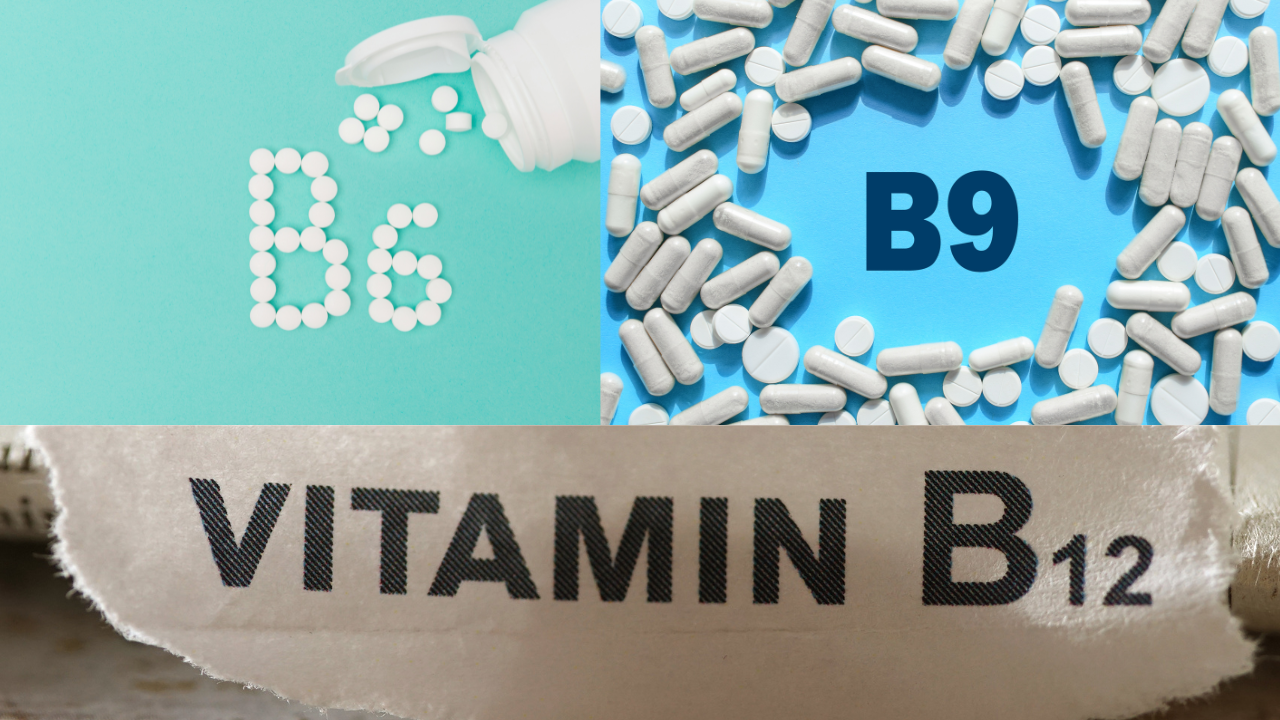 As the world progresses, so does the occurrence of cognitive illnesses such as dementia and Alzheimer’s, it has become a growing public health concern. Maintaining cognitive health has become critical not only for older adults but young adults as well.Recent research from the National Health and Nutrition Examination Survey (NHANES) 2011–2014, highlights an essential connection between the intake of B group of vitamins such as B6, B9 and B12, and cognitive performance among elderly adults.
As the world progresses, so does the occurrence of cognitive illnesses such as dementia and Alzheimer’s, it has become a growing public health concern. Maintaining cognitive health has become critical not only for older adults but young adults as well.Recent research from the National Health and Nutrition Examination Survey (NHANES) 2011–2014, highlights an essential connection between the intake of B group of vitamins such as B6, B9 and B12, and cognitive performance among elderly adults.
Surprisingly easy ways to protect your brain and prevent stroke
Cognitive decline with aging
 Cognitive decline with aging is natural, but once this progress and impedes with our daily activities, it becomes bothersome and individuals begin searching for a solution. Researchers usually measure cognitive decline with standardized tests and tasks that test memory, attention and speed of processing. In research by NHANES study, 2421 adults took part and were examined using three cognitive tests like : Consortium to Establish a Registry for Alzheimer’s Disease (CERAD) test, Animal Fluency (AF) test, and Digit Symbol Substitution Test (DSST).All the patients were categorized into two groups: low cognitive performance group, and other normal cognitive performance group. Furthermore to mention, this categorization was made in regard to their attributes like age, race, education status and health ailments, all were considered.
Cognitive decline with aging is natural, but once this progress and impedes with our daily activities, it becomes bothersome and individuals begin searching for a solution. Researchers usually measure cognitive decline with standardized tests and tasks that test memory, attention and speed of processing. In research by NHANES study, 2421 adults took part and were examined using three cognitive tests like : Consortium to Establish a Registry for Alzheimer’s Disease (CERAD) test, Animal Fluency (AF) test, and Digit Symbol Substitution Test (DSST).All the patients were categorized into two groups: low cognitive performance group, and other normal cognitive performance group. Furthermore to mention, this categorization was made in regard to their attributes like age, race, education status and health ailments, all were considered.
Key findings
 The research also revealed that there was a strong relationship between sufficient dietary intakes of vitamins B9 and B12 with reduced chances of poor cognitive performance among elderly. Vitamin B6 consumption was uniquely associated with improved performance on the DSSt test, which assesses the speed, memory and attention span.Vitamin B9 (Folate) and Vitamin B12: These two vitamins were highly associated with lower chances of cognitive decline. Older people with sufficient intake had about a 30% decrease in risk of LCP as quantified by the CERAD, AF, and DSST tests of cognition.Vitamin B6: Its intake was especially related to improved performance on the DSST test, reflecting its function in the upkeep of processing speed and working memory, tasks essential for daily activities and quick thinking.
The research also revealed that there was a strong relationship between sufficient dietary intakes of vitamins B9 and B12 with reduced chances of poor cognitive performance among elderly. Vitamin B6 consumption was uniquely associated with improved performance on the DSSt test, which assesses the speed, memory and attention span.Vitamin B9 (Folate) and Vitamin B12: These two vitamins were highly associated with lower chances of cognitive decline. Older people with sufficient intake had about a 30% decrease in risk of LCP as quantified by the CERAD, AF, and DSST tests of cognition.Vitamin B6: Its intake was especially related to improved performance on the DSST test, reflecting its function in the upkeep of processing speed and working memory, tasks essential for daily activities and quick thinking.
The importance of B vitamins
All the above-mentioned B vitamins are involved in various functions in the body such as:They assist in homocysteine regulation, an amino acid, that is associated with intellectual impairment and other neurodegenerative disease. Vitamins B6, B9, and B12 assist in the metabolism of homocysteine, thereby lowering its toxic build-up.Neurotransmitter Synthesis: These vitamins are involved in the synthesis of neurotransmitters like serotonin, dopamine, and gamma-aminobutyric acid (GABA), essential for mood stabilization, memory, and cognition.Myelin growth and repair: Vitamin B12, specifically, is required for the preservation of myelin, the nerve fiber protective sheath. Myelin damage may disrupt nerve signal transmission and cause cognitive and neurological impairment.Food sources rich in all threeVitamin B6 most typically seen in fish, potatoes, bananas and cereals fortified with B vitaminsVitamin B9 are generally present in vegetables, legumes, nuts and fortified grainsB12, primarily in animal foods, meat, milk, eggs.Practical tips on how to include them in diet Well-balanced diet, which must consist of an assortment of B vitamin containing foodsOlder people should have their vitamin levels checked and cognition tested every once in a whileTo note: This is for informational purposes only, before taking any supplement or adopting any measure, please consult a medical health professional.
Well-balanced diet, which must consist of an assortment of B vitamin containing foodsOlder people should have their vitamin levels checked and cognition tested every once in a whileTo note: This is for informational purposes only, before taking any supplement or adopting any measure, please consult a medical health professional.

